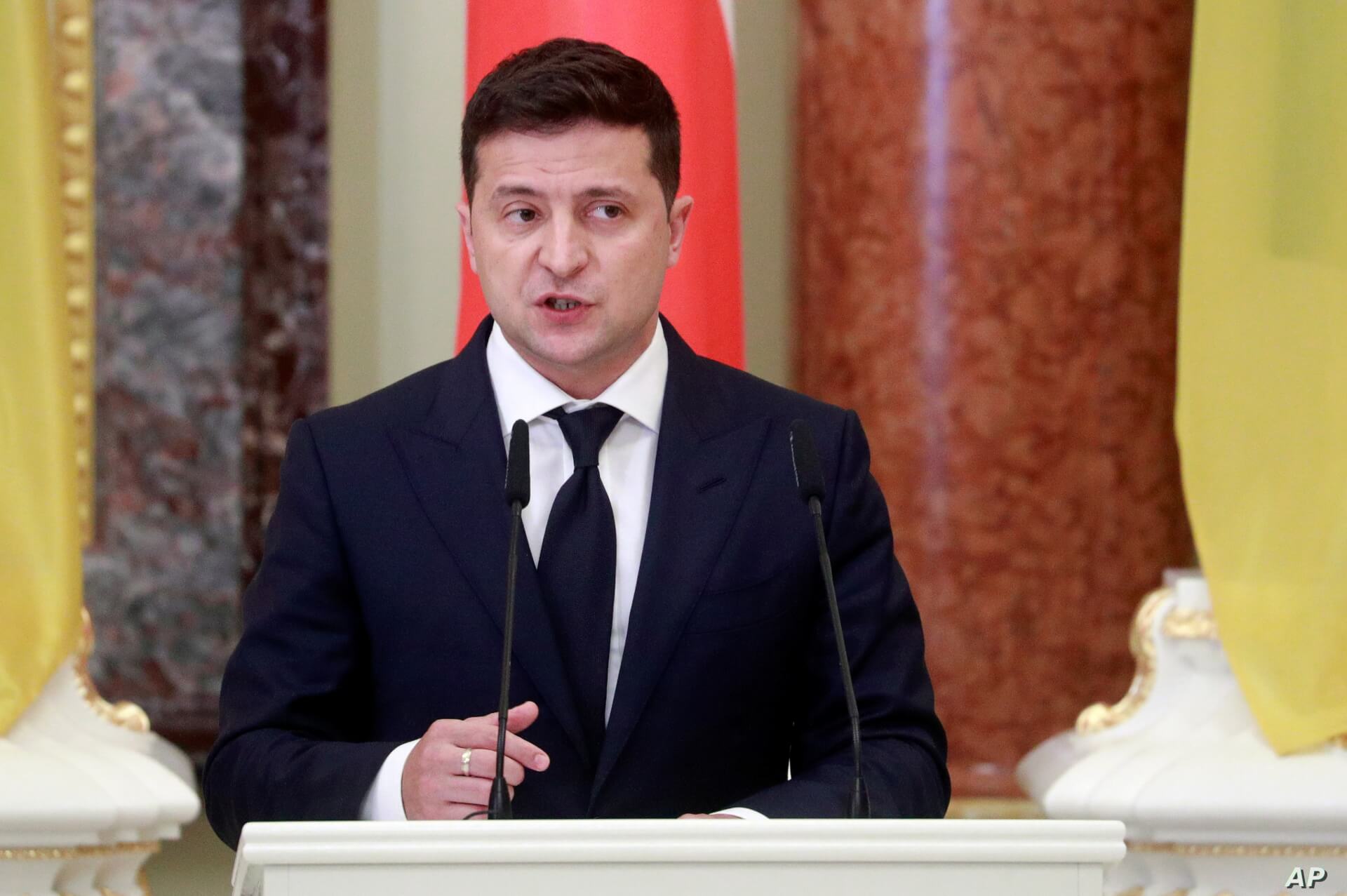Ukrainian President Volodymyr Zelensky on Thursday expressed concern about Russia issuing passports to residents in the Donbas region of eastern Ukraine, arguing that it was the “first step” towards annexation.
“This is definitely the first step because the same thing happened once in Crimea, Crimea residents were given Russian passports. This is a big problem,” Zelensky told a press conference.
Just weeks before Zelensky took office in 2019, Russian President Vladimir Putin signed two decrees aimed at accelerating the naturalisation of Ukrainian citizens residing in certain areas of Donetsk and Luhansk regions (CADLR), as well as ex-pat residents of Russian-annexed Crimea and their family members. Since then, official figures suggest that Moscow has given out approximately 527,000 passports in Donbas, with the number expected to double by the end of 2021. Despite international condemnation, Russia has justified its actions by citing “humanitarian reasons,” like making it easier for Ukrainians with expired passports to travel.
Given that Moscow has also vowed “to come to the defence” of Russian citizens in Ukraine in case of any provocations, Zelensky warned that it could be used as an excuse by Russia to openly engage in aggression against Ukraine.
Friction between the two sides has amped up in recent months, with clashes between pro-Russia separatists and government forces sparking concerns about an escalation of instability in eastern Ukraine. Tensions also soared in April due to Russia’s attempts to exert pressure on Kyiv by building up troops along their shared border as well as on the illegally annexed Crimean Peninsula. Despite Moscow’s subsequent promise to withdraw its forces from the region, Zelensky said that soldiers were still stationed there.
“They (Russian forces) are moving away very, very slowly. (This is) a serious situation and I think that such tension maybe until the end of military exercises, at least until September,” he stressed. Though the leader acknowledged Western powers’ help in the de-escalation of the situation, he urged them—especially France and Germany, who helped broker the 2015 peace deal in eastern Ukraine—to take a tougher position against Moscow and do more. “I feel their support, but I believe that it should be stronger,” Zelensky said, adding, “They are aware of my thoughts, I have been very frank with them. I believe that they have recently weakened their positions a bit.”
The president also expressed concerns about the United States’ (US) stance on Russia and warned Washington that if it failed the block the construction of the Nord Stream 2 pipeline, “it would mark a serious geopolitical victory for the Russian Federation and a new redistribution of spheres of influence.” The US fiercely opposes the project and considers it to be a threat to European energy security interests, which will make the market highly dependent on Russian sources. However, earlier this week, the Biden administration chose to waive sanctions against a German company overseeing the pipeline’s construction, while slapping new ones against Russian firms and vessels.
Zelensky Says Russian Passports in Eastern Ukraine Is “First Step” Towards Annexation
May 21, 2021

SOURCE: VOA
